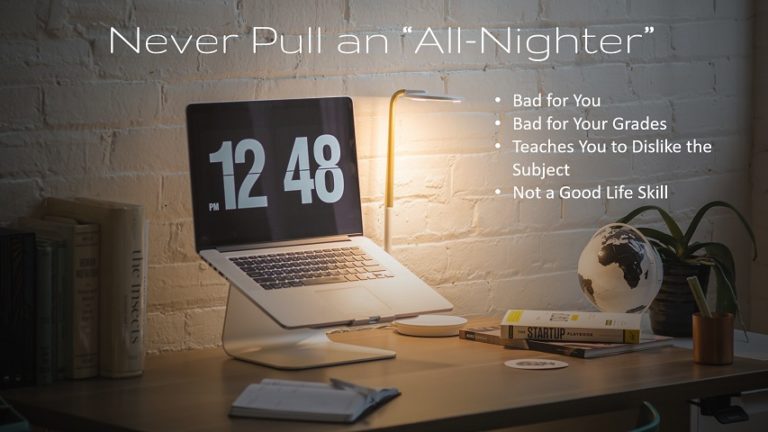How to Find the Right Chemistry Tutor
There are many factors that one should consider when thinking about finding and hiring the best chemistry tutor to help you with your class. So, let’s talk about some main points.
If you are looking for a tutor, it is, probably, because you are already behind and now need help to catch up with the material. Or, perhaps, you know that you would need help in the future, so you want to get ahead, and your class is more of a “review” of the concepts you have learned with a tutor. Or, maybe, you just want an alternative way of explaining to make sure that you have a firm grip on the material. In any case, once you’ve decided that you want a tutor, the next question is:
Where to find a good college chemistry tutor?
Well, since you are reading this article, you already have some idea of where to find a chemistry tutor. Obviously, one of the first resources that most people turn to is the Internet. When searching for a tutor online, you will first come across the small set of well-established and well-promoted web sites that are either large tutoring companies or tutoring marketplaces. These are for-profit tutoring companies, that advertise heavily and generate enough revenue to afford large scale nation-wide advertising. You can also find a “rogue” tutor not associated with any company or a marketplace or opt for peer-tutoring at your school.
Tutoring Companies and Marketplaces
There are certain advantages of hiring a tutor from a company. Firstly, the company will find you a tutor. The company is interested in having you as a client, so they will do everything in their power to retain you as a client. Secondly, when you hire a tutor from a company, you know that those tutors have undergone at least some sort of screening. How much you can trust this screening, well, that is a whole different story. Most tutors hired by national giants are undergraduate students of fresh college graduates. Thirdly, you have some flexibility with your payment. Most companies accept various forms of payment, so you don’t have to worry about carrying cash with you to every tutoring session to pay your tutor. And finally, with the age of technology comes more opportunities for technology-assisted tutoring solutions. Most big companies have some sort of platform for online tutoring and support. Big companies have access to virtual classroom environments with video and audio conference capabilities, virtual whiteboards, document sharing, etc. So, when you hire an online tutor from a big company, you will enjoy all the advantages of those advanced environments. With advantages of big companies come a corresponding price tag. Those companies exist to generate profit. Most companies will take 70% to 80% of the tutors’ hourly rate as an “overhead”. On average, large tutoring companies charge $50 to $75 per hour (regardless of the sessions being held online of offline) and up to $75 to $100 for challenging subjects and test prep. The tutors are compensated at $10-$15 per hour for online tutoring to $15-$25 per hour for in-person tutoring. The rest goes to feed the army of advertisers and “directors” who push the product. Tutoring companies do not compensate tutors for gas, travelling time, or teaching supplies nor they provide tutors with a location to work with their students. So, while you’re paying a significant fee, you;re meeting with a tutor who, at the end of the day, is doing it for barely a minimum wage after you account for expenses.
Going with a tutoring marketplace is another option. The major difference from a tutoring company is that tutors set their own hourly fee. The marketplace website will take a more reasonable “overhead” from tutor’s fee. However, tutors are still responsible for gas, travelling time, or teaching supplies nor they provide tutors with a location to work with their students.
How is Chemistry Help Center different? Well, in addition to a thorough screening and interview process involving teaching demonstration, we provide our tutors with technical, methodological, and pedagogical support. We also provide our tutors with a place to work with their students at our main Denver location and help them obtain teaching materials such as textbooks or practice examples while offering our tutors a fair hourly compensation.
Rogue Tutors
Finding a rogue tutor online who is not associated with a big company, is also a very real possibility. Most can be found on various ad boards such as cragslist.org. Those tutors can usually offer a substantially cheaper rate for their services since they don’t have to pay any overhead to the company or a marketplace. In this case, checking tutor’s credentials and trustworthiness is on you. If a tutor does not agree to talk to you before you hire them (do the free consultation, if you will), you might want to look elsewhere. Any tutor who cares about his or her business will be interested in talking to you and see if you are a good fit. A well-built personal website is often a good indication that the tutor is serious about his or her job. Those, who insist that their time is too valuable and are not willing to talk to you without making a paid appointment are only interested in making quick money.
Peer Tutoring at Your School and Other Venues
Another way to consider is going completely offline. Many schools have a list of tutors for different subjects. Ask the secretary of the corresponding department (or your school counselor) if they have such a list and contact a tutor from the list. Some teachers can also recommend you a tutor. Do not feel it is embarrassing or uncomfortable to ask your instructor if he or she knows a good tutor. If anything, it will show your instructor that you are interested in mastering the subject and doing all you can to do so.
Additionally, most schools today have some sort of student tutoring facility that you can use to find help with your course. These are commonly peer tutoring facilities where you’ll be helped by an older student who’s taken the course before and achieved a high grade. Those facilities are usually free, well, kinda—it still comes from your tuition, so you might as well use them and see how they can help you. It is also a great place to collect information about your future instructor so you can avoid a bad professor.
How much should you pay for a chemistry tutor?
Rates for tutoring typically range from $15 to $90 per hour. In big metro areas or in a case of a well-qualified experienced tutor it can go as high as $100-$150 per hour! What is more important, however, is to find a good match of what you want to learn and your tutor’s qualification. Well qualified tutors charge more. Let me break it down.
For the purpose of this comparison, I’m only going to discuss the full-time tutors. When thinking about how much a tutor should be making, compare their job to a corresponding teaching profession. Say, for instance, we’re talking about the college chemistry tutoring. A college chemistry professor earns about $50k-$60k per year. With an average 12-20 contact hours per week and 8-month academic year, it boils down to an average 400 to 800 teaching hours plus an equal amount of prep time to constitute it a full-time teaching position or $121-$145 per contact hour. Colleges can afford paying that much to professors by having reasonable large classes. So, with a class of 24 students you end up paying $5-$6 per hour of your instructor’s time spread between all of you with your tuition. As you sought out tutoring, it is, probably, because this “spread” attention is not enough for you to master the material. So, if you want a teacher’s 100% time and attention, think how much this person would be making commensurate with the equal level teaching professional if s/he was tutoring full time and divide it by 600 to give you a reasonable hourly rate. This way, a reasonable compensation for a peer tutor will be about $30 per hour, for a graduate tutor $40-$60 per hour, and for a professional tutor with a degree and years of experience $75-$150 per hour depending on the level of your course, tutor’s experience and knowledge, and “extras” provided with each tutoring session. Individual professional tutoring is an exclusive service after all. Of course, spending a considerable sum on a chemistry tutor may be expensive. Retaking the course if you fail is still way more expensive, especially if you consider the time lost!
However, if you are trying to save on college chemistry tutoring by hiring a recent college graduate (peer tutor), you are likely to get what you pay for. Even if a recent college graduate knows the subject matter, he or she will lack in the depth of the subject matter understanding and teaching experience, which are the essential qualities of a good tutor. Contrariwise, just because a potential tutor has an advanced degree, does not mean the he or she is a good teacher.
Most tutors will be open to negotiations, especially, if you are negotiating a long-term tutoring. Ask a potential tutor if he will be willing to do group sessions, so you can work with a friend or two with your tutor and save yourself some money. Remember, that tutoring just like any other teaching requires preparation time from your tutor. Do you just want a tutor to oversee you working on problems and “catch” you when you are about to make a mistake? Negotiate it! Are you interested in your tutor to just double-check your work and point out any mistakes you have made? Negotiate it! Are you willing to provide tutor with teaching materials (such as stationery, give your tutor a copy of a study guide, give your tutor a copy of your textbook)? Negotiate it! Do you come to your tutor, do you want tutor to come to you, or do you want to meet somewhere? Most professional tutors either have their offices or are willing to travel only a short distance, if you would like them to come to you, you should expect an extra fee.
How to work with a college chemistry tutor?
First and foremost, you should realize that not every tutor is a good fit for every student. In order for tutoring to be effective, a tutor needs to build a rapport with a student. So, if you don’t “click” with your tutor, you should consider finding another tutor no matter how great the tutor appears to be. No matter how knowledgeable a tutor is, if you cannot build a needed rapport with your tutor, his teaching will not be effective and you will lose valuable time.
Tell your tutor about your strengths and weaknesses
Be honest with your tutor. If you have any learning disability that prevents you from achieving your goals, tell this to your tutor. Are you good with numbers, or conversely, you better operate with visual information? Tell this to your tutor! Does it help you when you are presented with a concept from a number of perspectives? Tell this to your tutor! An experienced tutor will know how to approach each session to address your weaknesses and play to your strengths.
Set your goals
Getting a better grade comes to mind right the way. However, getting a good grade is not the goal you should be looking for! A good grade will be a result of a correctly formulated goal. Your goal should be to address your weaknesses and to use your strengths to improve the understanding of the material. If you are good with numbers and calculations, you should be focusing on conceptual understanding and learning how to “translate” concepts into numbers. Conversely, if you are good with concepts and definitions, you need to learn how to translate it into formulas. An experienced tutor will be able to quickly identify your learning style and will help you to expand your learning strategies and learn new study skills.
Follow your tutor’s advice
An experienced tutor will recommend certain learning strategies and approaches to you for a reason! They have years of teaching experience and know how to address your strengths and tackle your weaknesses with carefully chosen techniques.
Work with your tutor to learn
It can be very tempting just to ask for the answer. However, the “quick fix” will hurt you in a long run. The worst answer you can give your tutor is “I don’t know”—instead, try to come up with some answer, make an educated guess! If you just ask your tutor for an explanation, you are not actively working on actually understanding the problem. When you are trying to solve the problem yourself and only ask your tutor for guidance, you are actively constructing piece by piece a deep and detailed understanding of the subject. A knowledge that you “discover” yourself will stick with you for years to come. Things that are explained to you will make sense for a while but will eventually dissipate. Ultimately, you are responsible for learning the subject. No tutor, no matter how good he or she is, will be able to teach you the subject without you actively participating in the process.
Concluding thoughts
This article turned out to be way longer than I anticipated (over 2000 words, sigh), so I apologize for its length. Finding a right tutor is a process, so don’t get discouraged if you don’t get a perfect fit with the first tutor you try. I wish you a best of luck in your search for the best help in your chemistry course.






